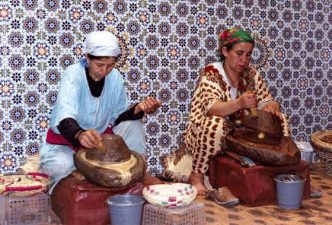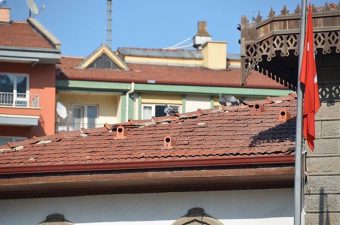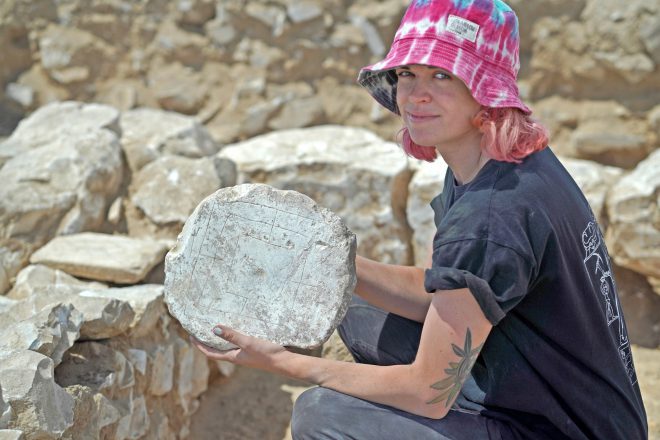
One of the fascinating games found at the archeology site, the oldest ancient soap factory, a soapery, found in the region.
Israel’s most ancient soap making workshop – a soapery – has been exposed in recent weeks at an excavation site run by the Israel Antiquities Authority and young participants, inside a wealthy home of the Islamic period from approximately 1200 years ago, in the Bedouin city of Rahat. Home to many green and eco activists.
Over the last six months, hundreds of youth and adults have been employed at the large archaeological excavation managed by the Israel Antiquities Authority, including participants from among the local Bedouin residents, university students and students in pre-military preparatory programs.
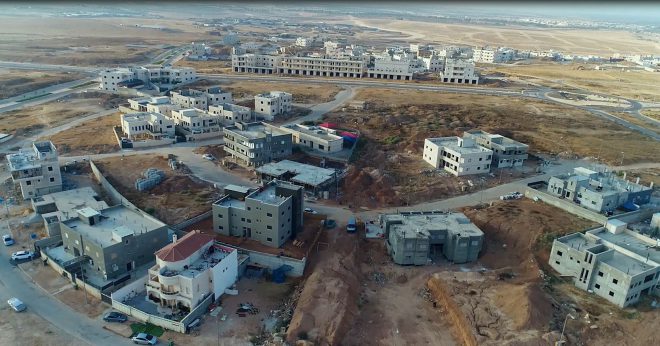
The workshop was discovered in a 1,200-year-old home
The excavation was supervised by Dr. Elena Kogen-Zehavi, with the help of Dr. Yael Abadi-Rice and Avinoam Lehavi. The purpose was to reestablish the connection between the community and the local history. The excavations were carried out in light of new neighborhood developments in Rahat, initiated by the Authority for Development and Settlement of the Bedouin in the Negev.
The production of olive oil soap is mentioned in writings since the 10th century and it has been a significant industry in the region from the Middle Ages and until the early 20th century. During the soap-making process, olive oil was used as the base material, mixed with ashes produced by burning salsola soda (or saltwort) plants, which contain potash and water.
See Palestinians making it in the West Bank.
The mixture was cooked for about seven days, after which the liquid material was transferred to a shallow pool, where the soap hardened for about ten days until it could be cut into bars. These were piled for additional drying, and the final product was ready after an additional period of two months. The site at Rahat displays facilities associated with this industry.
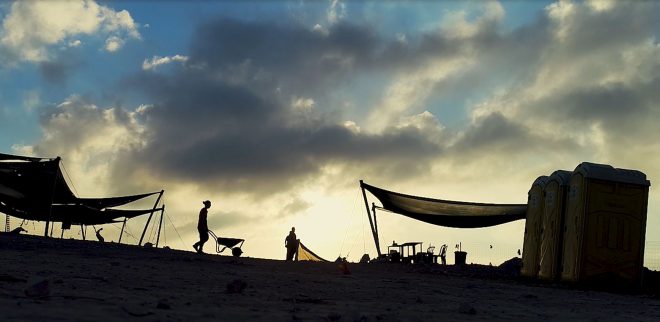
“This is the first time that a soap workshop as ancient as this has been discovered, allowing us to recreate the traditional production process of the soap industry,” says Elena Kogen Zehavi, the IAA excavation director.
Olive oil soap is still made like the ancients did in the West Bank. It’s being poured on the floor to cool and solidify. The tradition goes back over a thousand years when the land was inhabited mainly by Jews and Christians, before the Islamic reign began.
This film shows the process of traditional soap production in the old soap factory in central Nablus. Film produced by Eirik Moe, Stavanger, Norway.
The games they played
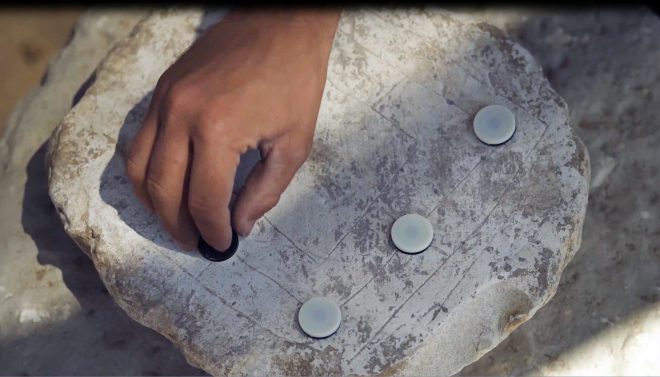
An ancient gameboard called the Windmill.
According to on-site archeologist Svetlana Tallis: “One of the underground spaces of the wealthy building contained another exciting finding, shedding light on the daily life of the inhabitants – a round limestone gameboard used for a strategy game called the Windmill.”
This game is known to have existed as early as the 2nd and 3rd centuries CE (the Roman period), and it is still being played to this very day.”
Nearby, a second gameboard known as “Hounds and Jackals”, or “Fifty-eight Holes” was also found. This game was first played in Egypt and it spread to other parts of the Mediterranean basin and to Mesopotamia around 2000 BCE. In Israel, it has been discovered in ancient Megiddo and Tel Beth Shan. It was played by two players throwing dice or sticks that determined the number of places to move with each throw. The goal of the game seems to have been a specific point on the board.
Laundry soaps – is less more green? Jordanians Concentrate for the Environment
We have featured some ancient games on Green Prophet not long ago, like those played in Jordan, across the border. Once borders did not separate Bedouins, nomadic people now living sedentary lives in towns, villages and cities.
See ancient multiplayer game mehen here.

Ancient multiplayer game from Egypt revived by a kickstarter campaign.
According to the mayor of Rahat, Fahiz Abu Saheeben, “The excavation has revealed the Islamic roots of Rahat. We are proud of the excavation and happy that it took place in cooperation with the local community. We enjoy good relations with the Israel Antiquities Authority and the Authority for Development and Settlement of the Bedouin in the Negev and we hope to construct a visitors’ center that tourists and the local community will be able to enjoy.”


